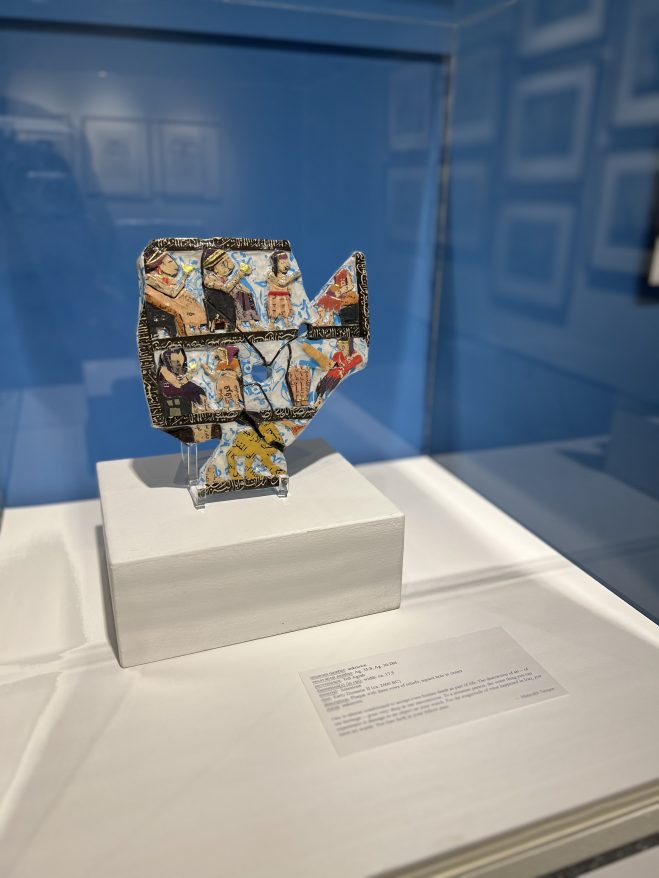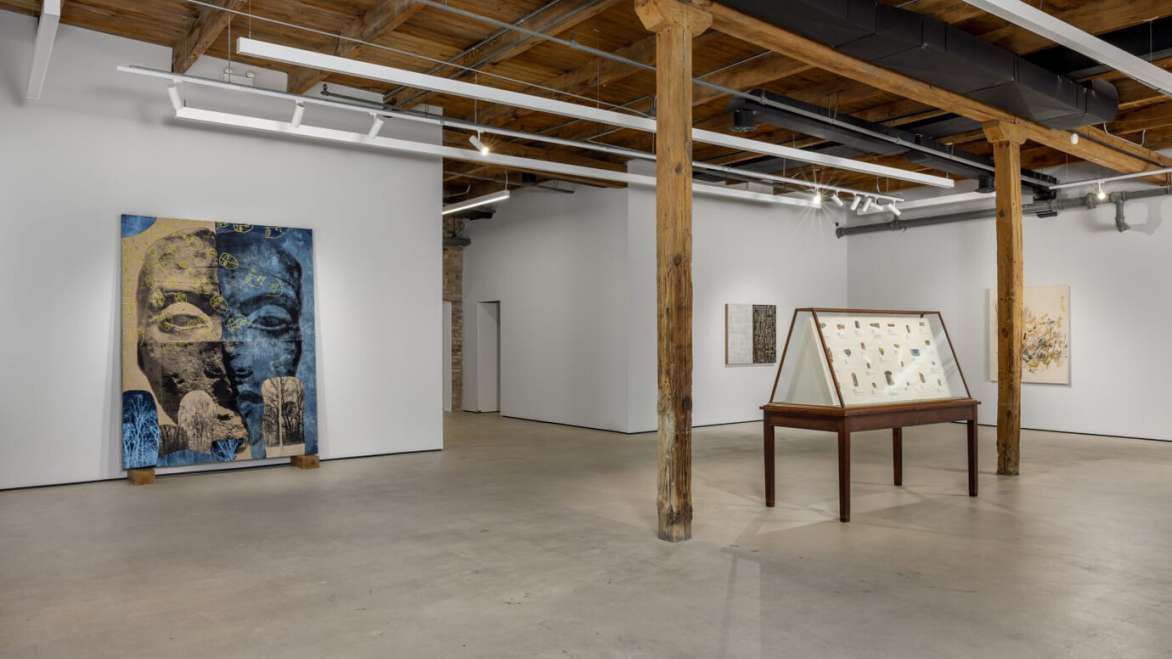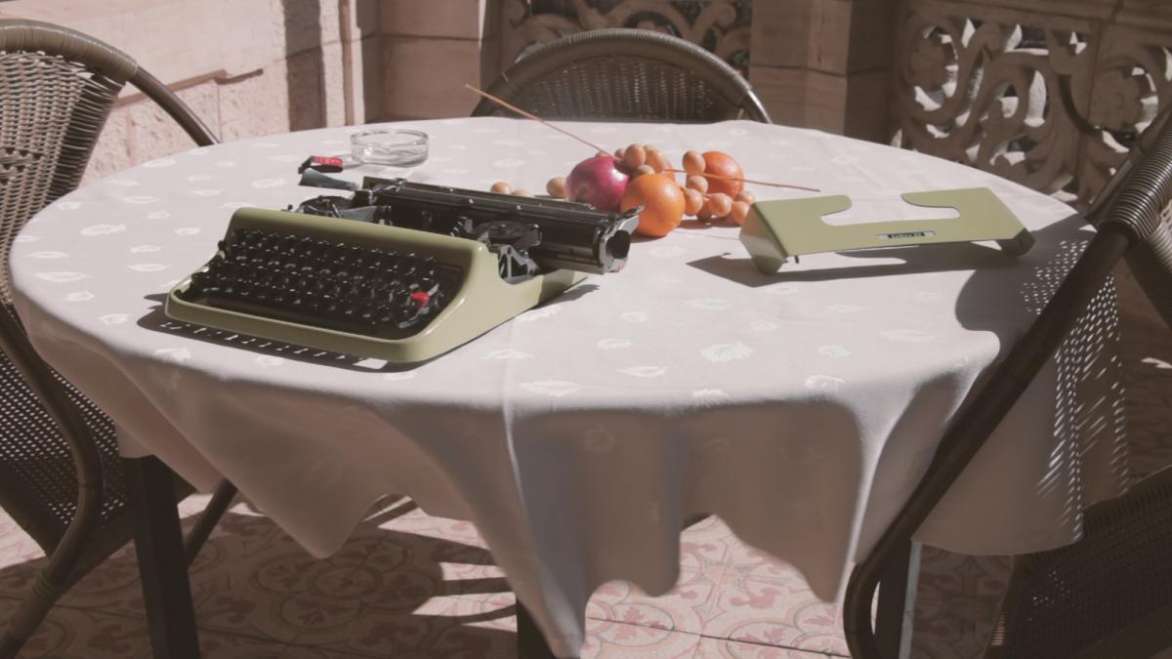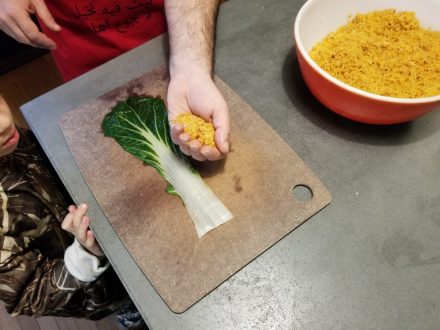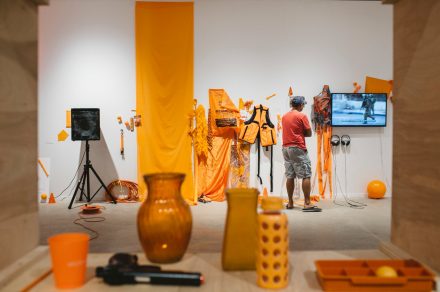As published in The New Yorker:
Through playful, outraged interventions, a sculptor seeks to reclaim a lost Iraq.
Michael Rakowitz was looking for Kubba, a stall in London’s Borough Market that serves Iraqi cuisine. The air was temperamental: a cold mist clung to hair between bouts of drizzling rain. Rakowitz had arrived on a red-eye from Chicago, where he runs a nine-person studio, producing sculpture that shows frequently on the international art circuit. He had wrapped himself in a dark coat and a checkered kaffiyeh, which pushed up against his wavy, disordered hair. The stall had just opened, and he had never been to it. His phone was no help. “It should be here,” he said, looking up from a map quizzically.
Kubba’s owner, the chef Philip Juma, is a friend and a collaborator of Rakowitz. Last year, they prepared an Iraqi dinner at London’s Whitechapel Gallery, to celebrate the launch of a cookbook that Rakowitz had edited. The book was tied to his most visible public installation: a large sculpture in Trafalgar Square, inspired by an Iraqi monument built in ancient Nineveh—a gypsum carving of a winged protective spirit, called a lamassu, which was destroyed by ISIS in 2015. Rakowitz had “reappeared” the lamassu using the ephemera of exile: cans of Iraqi date syrup in five different brands. To underscore that the project was as much about the present as about the past, the cookbook included dishes by Juma and chefs like Yotam Ottolenghi, as well as by Rakowitz’s mother, who was born to Baghdadi Jewish parents in India. Its title is taken from a Mesopotamian proverb: “A house with a date palm will never starve.”
Although Rakowitz is known as a sculptor—this year, he was awarded the hundred-thousand-dollar Nasher Prize—the act of making things is often secondary to his art. He frequently deploys found objects to create what Artforum once called “simple but dizzying interventions.” The pieces can be playful, sometimes invoking his own pop-culture obsessions, like the Beatles, or food. In 2011, at a Park Avenue restaurant, he staged a “happening,” titled “Spoils,” which involved a meal of venison atop date syrup and tahini, served on plates looted from Saddam Hussein’s palace. (He had purchased them on eBay.) When the Iraqi government demanded that the plates be returned, Rakowitz considered it part of the work, and rushed to get them to Iraq’s Prime Minister, who was visiting Washington. They were ferried to Baghdad on a government plane—journeying, through diaspora, from tyrant to elected leader.


